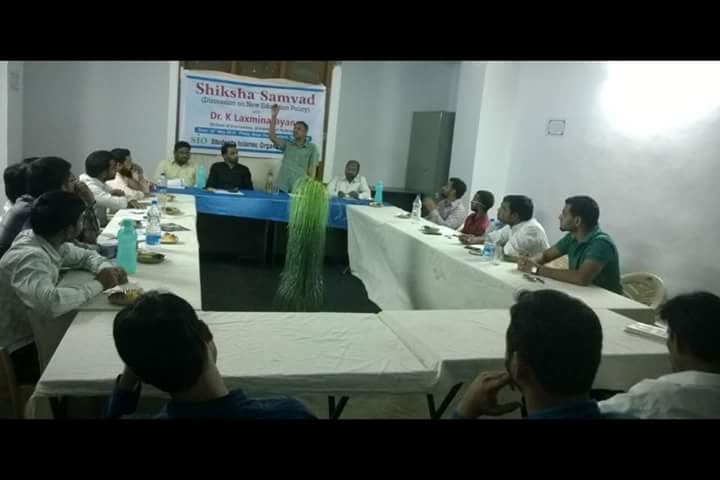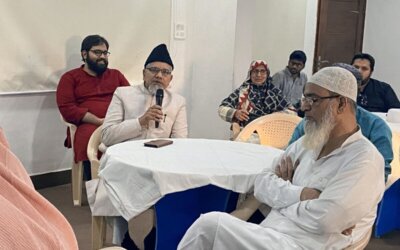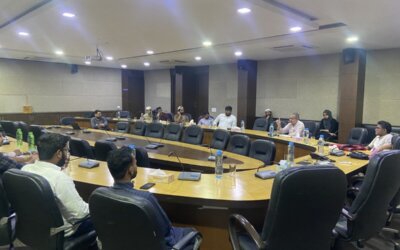SHIKSHA SAMVAD with PROF K. LAXMI NARAYAN, UNIVERSITY OF HYDERABAD
CHOICE BASED CREDIT SYSTEM (CBCS)
INTRODUCTION:
Choice Based Credit System (CBCS) has semester system introducing credits instead of marks to the students.
This also provides facility free choice to students to choose any course from any university.
Courses are divided as:
Core courses
Foundation courses
Elective courses
Students are free to choose from above provided courses i.e., “student free system “students can move anywhere need not stay at only one place.
Government has asked suggestions for choice based credit system without any guidelines provided.
UGC is consulting academic bodies for suggestions
Govt has not given any clarity regarding formulation of policy internal intensions are not revealed.
Job oriented education policy is suggested.
1. Single syllabus:
If the syllabus is same throughout the nation students are restricted to study single committee designed curriculum, forcing student to choose newly designed syllabus only in fact there will be no choice left to students to select.
Designed three type of course syllabus disciplines may not fulfill in its entire aspect
Who decides what courses are core /fundamental / elective…?
There are strong objection that syllabus would be restricted and limited.
National syllabus will not be easily updated.
Accommodation of recent / latest things is not possible by central unit
Regional subjects and concerns will be overlooked and neglected. So loosing diversity.
2. Value education:
Central Govt. is saying they will impart value based education in new policy but what values they mean to say, is it implementation of Bhagavat gita .
There should be no Communalisation in the name of Indianisation. Hindu scriptures should not be imposed in the curriculum.
3. Assessment:
In this CBCS, 50% marks in end of semester will be evaluated by external examiner.Question paper is also prepared by examiner. How come examiner can justify the student he was not a teacher, only on the assessment day How can he judge the student without knowing the background.
Delay of making papers, evaluation and results…
Online universities will be prevalent and more causes in saving of money by closing schools, colleges and universities.
Grievance cell is also absent. (Even if it is provided it cannot be easy to handle.)
4. Mobility of students:
As system says students need not to stay at any single university for study. This makes much difficult to poor and economically backward people, will be deprived. This will be possible only to rich.
Regional universities will lose their status, will lead to closure also. If students move to central universities.
Virtual knowledge / online learning will be just information gathering, each individual has his own way to learn teacher can impart in his own learning style. Real class learning cannot be neglected.
5. Employability:
Education system only cannot create employability economic policy will create employment.
Capitalism is creating unemployment
Business economics / business studies are introduced instead of literature, humanities and history etc…in the name of job – orientation humanities are neglected it is a threat to humanism
Skilled labor will be prepared to work only just to earn money and more money. Machine like just work oriented individuals are created in society by this system.
Hampering of real knowledge and creativity in present and coming generations.
It is a market oriented – skill laborers will be produced. It serves only corporate sector. It is anti-real education, anti – poor, anti – nation and anti – minorities.
Our local universities may become branches of foreign universities serving for their cause forming just an education business.
Note points:
• Europe has already introduced this cbcs method but failed horribly.
• Though same language students Mobility was not practical
• Language was barrier in foreign in healthy understanding.
• Credit system is available but choice based credit system may destruct our diversity in whole.
• Closure of local universities and making real state universities such as Gitam University etc…
• Fundamentals of education are lost.
• Threat to public education.
• Public intellectual should be generated not corporate labors.
• New education policy should change with new economic policy.
• Linking higher education to societal development is must else students feel no social responsibility.
• Cultural integration is to be maintained by regional and local universities and public education support is required instead of private education system.
• Higher education should be public, no public pvt partnership.
• Higher GDP is to be allocated in budget of nation, full financial support to higher education.
Mohammad Umar, Hyderabad for Shiksha Samvad






0 Comments